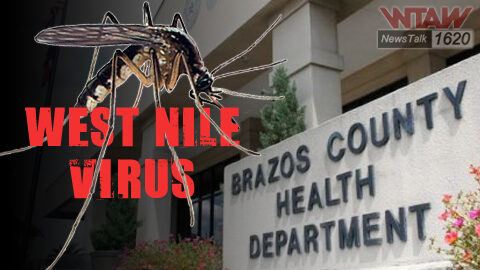
This story has been corrected to reflect West Nile Virus and Dengue fever are different diseases.
The Brazos County health district reports a Brazos County resident has contracted West Nile Virus and another resident has contracted Dengue Fever.
The patient with West Nile Virus lives in the 77803 zip code of west and north Bryan.
The patient with Dengue fever, who lives in the 77802 zip code east of Bryan, contracted it during a trip to Mexico.
News release from the Brazos County health district:
The Brazos County Health District has confirmed two cases of mosquito related disease in Brazos County with the Texas Department of State Health Service.
The first is a Neuroinvasive case of West Nile Virus (WNV) in the 77803 zip code. The second is a travel related case of Dengue fever who had traveled to Mexico and resides in the 77808 zip code of Brazos County.
Please keep in mind that all of Brazos County should be considered positive for WNV.
Brazos County Health District officials have notified the other members of the Vector Surveillance and Control Partnership members with the City of Bryan, City of College Station, and Texas A&M University.
All Brazos County residents are urged to use the 4D’s to reduce exposure to mosquitoes:
· DEET All day, Every Day: Whenever outside, use insect repellents that have the active ingredient DEET or other EPA-registered repellents and always follow label instructions.
· Dress: Wear long, loose, and light-colored clothing outside.
· Drain: Drain or treat all standing water in and around your home or workplace where mosquitoes could lay eggs.
· All Day long: Day, Dusk, and Dawn – Limit your time outdoors, mosquitoes are active any time day or night.
West Nile Virus is transmitted through the bite of infected mosquitoes. Most people exposed to the virus do not get sick, but about 20% develop symptoms like headache, fever, body aches, joint pains, nausea, and fatigue. In a very small portion, less than one percent, the virus affects the nervous system, leading to a more serious illness that can cause neck stiffness, disorientation, tremors, convulsions, paralysis, and even death.
There are no medications to treat, or vaccines to prevent West Nile virus infection. In the last 10 years, Texas has reported more than 3,300 cases of West Nile disease, including 172 deaths according to the Texas Department of State Health Services.
